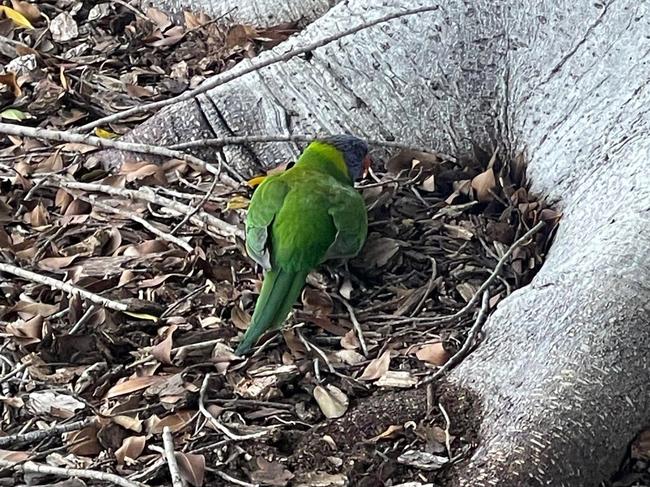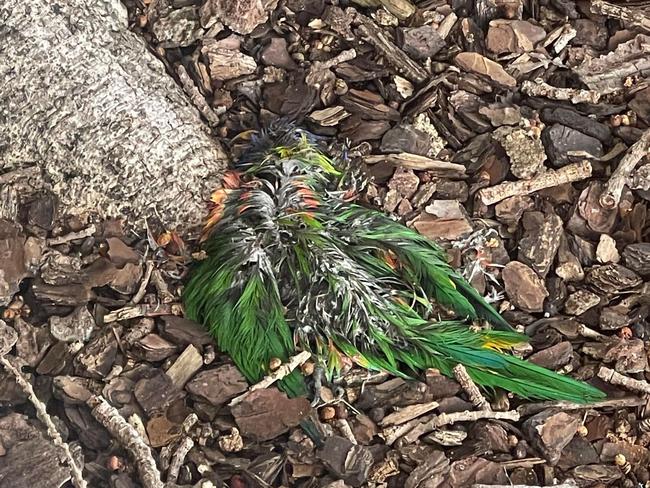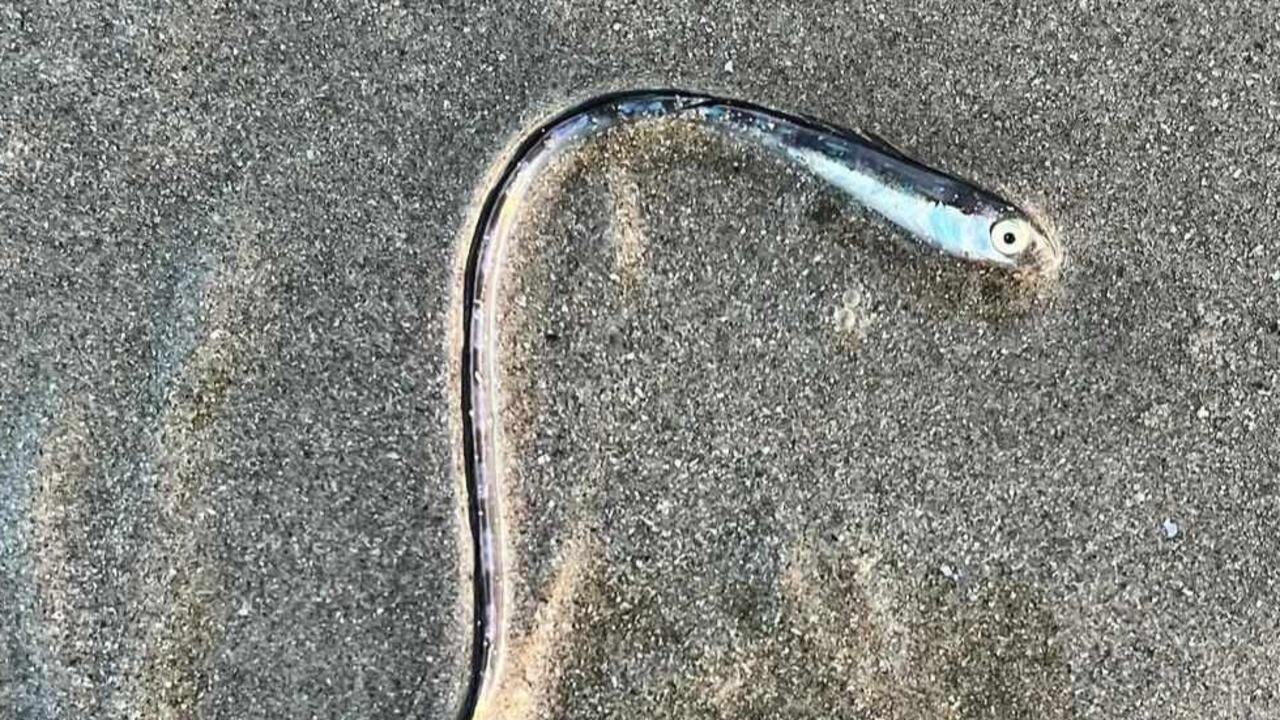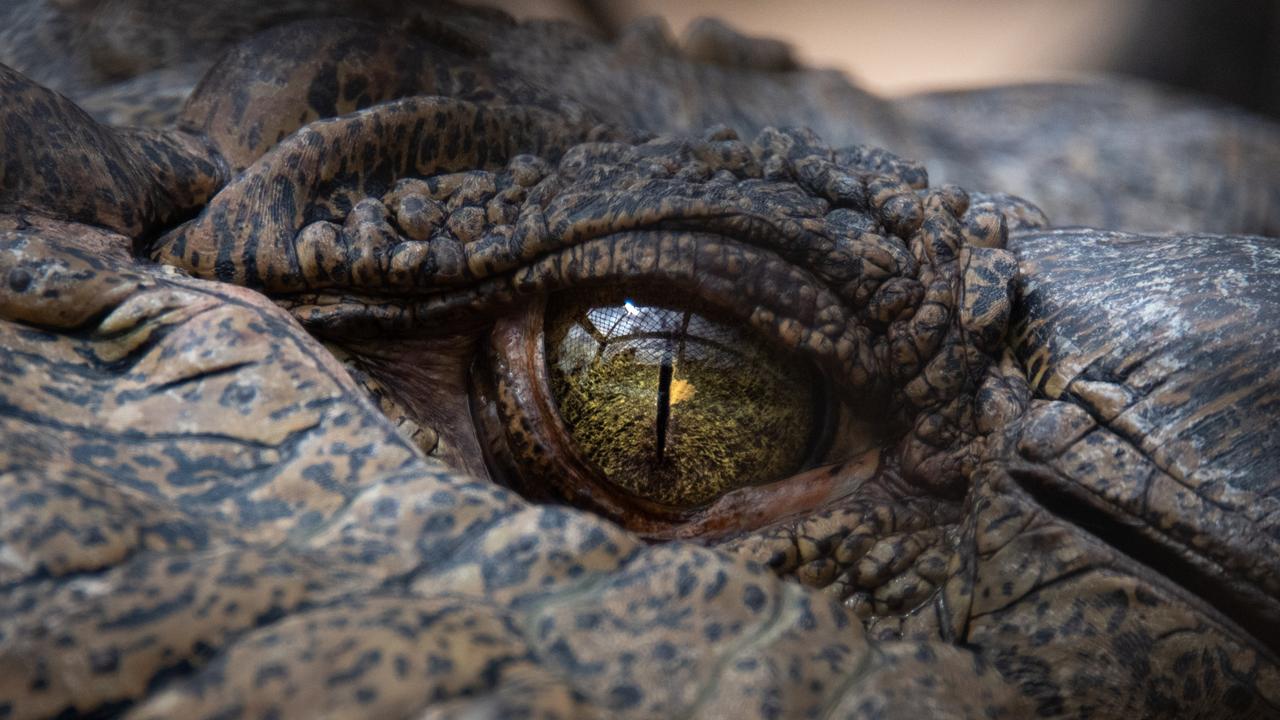Mysterious toxin infects over 600 rainbow lorikeets in Ipswich
More than 600 dead and paralysed rainbow lorikeets have been reported over the past week as wildlife experts continue to investigate the mysterious cause.

Pets and Wildlife
Don't miss out on the headlines from Pets and Wildlife. Followed categories will be added to My News.
More than 600 dead and paralysed rainbow lorikeets have been reported in Ipswich over the past week as wildlife experts continue to investigate the mysterious cause.
The RSPCA expressed their concern following huge numbers of Rainbow lorikeets infected with Lorikeet Paralysis Syndrome (LPS).
RSPCA wildlife community development manager Jaimee Blouse said the volume of infected lorikeets had tripled from the average of about 200 over previous years.
“The main thing for us is trying to understand what has caused such a huge volume of animals this year, but we do believe it to be a toxin they are ingesting from some kind of vegetation,” she said.
Ms Blouse said the hospital had received a report of up to 20 sick and dead lorikeets under one tree in Ipswich.
“We don’t typically see anything like that and certainly not at this amount,” she said.
Ms Blouse said they had been taking DNA and faecal samples but had so far “come up short.”
“They are in the wild so when they are found under a tree for example it could be something completely different they ingested somewhere else,”
“It just makes it really hard to pinpoint.” she said.

Ms Blouse said LPS was typically found in larger numbers after extreme weather events.
“We normally notice it in correlation with extreme heat or rain,” she said.
But Ms Blouse said cases had been particularly bad over the past week.
“The symptoms we see are the bird’s inability to fly and in more severe cases even walk,”
“We also notice they struggle to swallow or blink and have vocal issues,” she said.
Ms Blouse said they had urged members of the public to transport any sick and injured birds to the hospital if safe to do so.
“It is a treatable condition if it’s not left too late, we have already moved several birds on to long term rehabilitation centres.”
Video footage seen by The Courier-Mail captured vision of the birds unable to lift their heads from the ground.

Wildlife veterinary director Tim Portas said it was difficult to determine what was causing them to appear in this state.
“ … but I’ll head back and conduct some tests with my team on the few we picked up here today,” Mr Portas said.
“We ask people who see sick or deceased rainbow lorikeets to record/take photos of trees they are found under. Alternatively, footage of them socialising/feeding in trees would be valuable so we can try to get to the bottom of this.”
From January 1-23, the hospital saw more than 600 lorikeets in care up from 427 in January last year.



